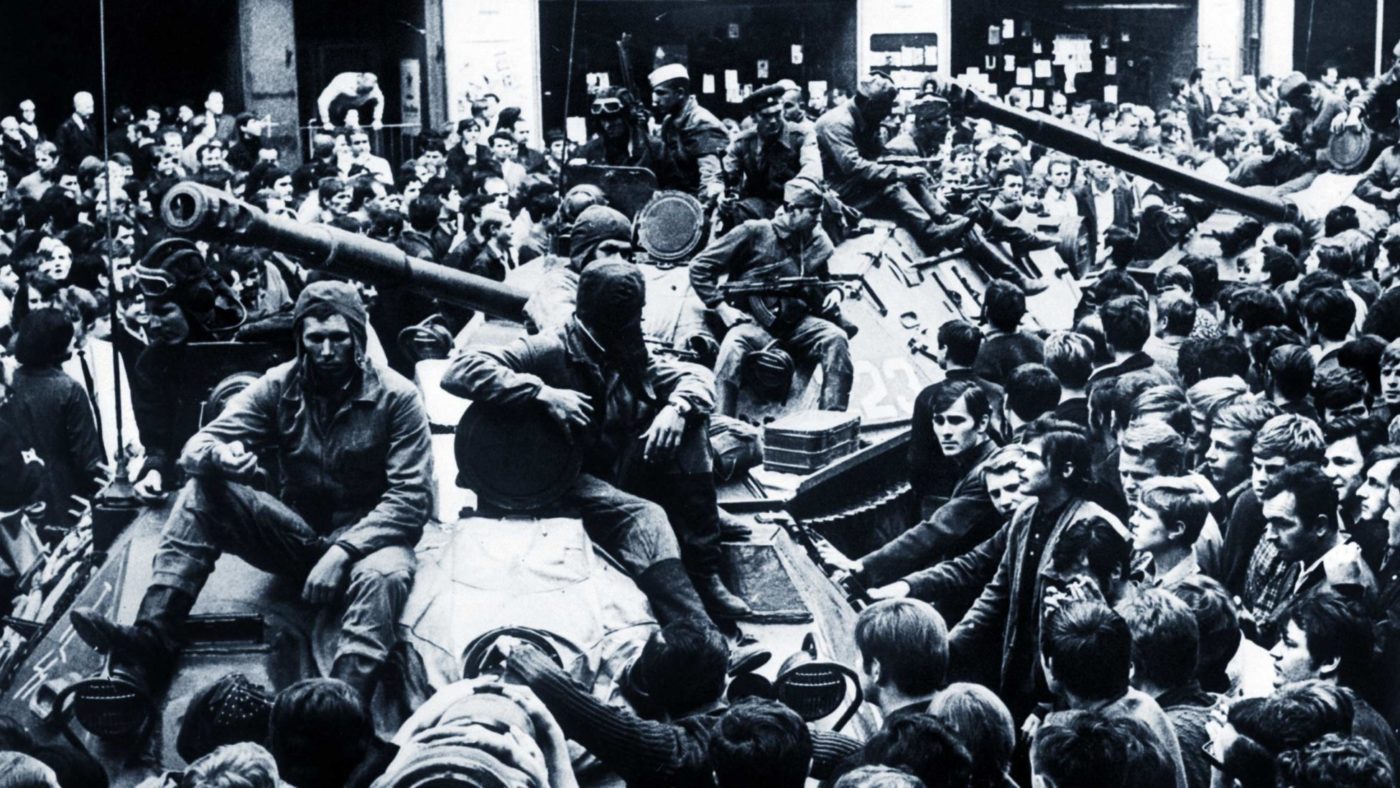Fifty years ago this week, the Soviet Union and Warsaw Pact countries invaded Czechoslovakia. It was the second time within a dozen years that the Kremlin had invaded a foreign country, following its crushing of the Hungarian Uprising in 1956, and it removed any illusions the West may have had about the Soviet Union’s grip on the captive nations of eastern and central Europe.
The legacies of those events still divide the Czech Republic (or “Czechia”, as the country officially rechristened itself in 2016) and Slovakia today.
On the night of August 20, 1968, around 250,000 troops from the Soviet Union as well as Poland, Hungary, and Bulgaria flooded into Czechoslovakia. As some 2,000 tanks ground through the Czechoslovak countryside, Soviet troops seized Prague airport. Alexander Dubcek, Czechoslovakia’s reformist leader, and his colleagues were arrested and deported to Moscow – they were forced to sign documents retrospectively “inviting” the invasion and thanking Moscow for providing “fraternal assistance” to an ally in need.
The Soviet Union invaded to crush the “Prague Spring” – a series of reforms, instituted by Dubcek, that attempted to build “socialism with a human face”.
After 20 years of hard-line communist rule, Dubcek had begun to a process of liberalisation – he tolerated political organisations not controlled by the party, loosened some of the more repressive laws, and made travel easier. After the Kremlin humiliatingly undid his reforms, Dubcek was assigned a job as a forester in rural Slovakia.
The invasion was driven by the Kremlin’s desire to reassert its domination over central and eastern Europe. The opening up of Czechoslovak society threatened to spread to other Communist states. Dubcek’s reforms had already created division within the Warsaw Pact. For seven months before August 21, Czechoslovaks had a small taste of what it might be like to experience the justice and welfare promised by communism, together with the freedom enjoyed by the West.
The Czechoslovaks were strongly Atlanticist during the Cold War, but the West failed them — first in 1948, when the UK and US failed to act after the communist party seized power, and then in 1968.
NATO condemned the crushing of the Prague Spring, but had no intention of intervening. The United States, bogged down in Vietnam, was seeking to broker a disarmament agreement with the Soviet Union – what would become the Strategic Arms Limitation Talks (SALT) that began in Helsinki, Finland in 1969.
For many young Czechs and Slovaks, the events of 1968 are ancient history. The subject is taught in history lessons at school, but they grew up after the triumph of the Velvet Revolution of 1989.
Within two years of the revolution, the Warsaw Pact no longer existed, and the Soviet Union was about to disappear from the map. Captive states across central and eastern Europe were soon to get their freedom back. In 1993, both Czech Republic and Slovakia were held up as shining lights of capitalism and democracy in Europe. Both joined the EU and NATO as soon as possible.
But all is not well. Over the last decade, the West’s political landscape has been remade. Liberalism is in retreat, the rule of law is under threat, and national populism is on the rise.
NATO is being undermined by transatlantic uncertainty, the EU is short of unity and political willpower. Both the Czech Republic and Slovakia are suspected of sliding backwards on standards of democracy, and there are fears they could go the same way as their illiberal neighbours in Hungary and Poland.
Milos Zeman, the Czech president, is closer to Moscow than Brussels. He refused to deliver a speech or attend any official events marking this week’s anniversary.
Andrej Babis, the prime minister, is a billionaire businessman whose populist style and entanglements with the law have earned him the nickname “Babisconi,” after Italian billionaire turned prime minister Silvio Berlusconi.
In last October’s elections, the far-right and Russia-friendly Freedom and Direct Democracy (SPD) party gained 10.6 per cent of the national vote, while the Social Democrats, who have been at the centre of Czech politics for a quarter of a century and had finished first in the previous election, received just 7 per cent.
In Slovakia, Robert Fico, the prime minister, and Robert Kalinak, his interior minister, both resigned earlier this year after the murder of the investigative journalist Jan Kuciak and his fiancée, Martina Kusnirova, in February sparked public protests.
German Federal Prosecutors believe that Kalinak is also involved in the case of Trinh Xuan Thanh, a former Vietnamese official who was allegedly abducted in Berlin in July 2017 and then flown from Slovakia to Vietnam in an aircraft provided by the Slovakian government.
Public opinion in Slovakia, meanwhile, is more favourable toward Russia than anywhere else in Central Europe. In July, the Night Wolves – a Russian nationalist biker gang close to Vladimir Putin – established a base in the west of the country.
Situated in the heart of Europe, both the Czech Republic and Slovakia are key sites in the West’s struggle with the rise of populism and retreat of the international liberal order. It is in the interests of neither country to drift too far from the European mainstream – and it is not in the interests of the West to repeat its past mistakes, either.
The question in 2018, as in 1948 and 1968, is: will we stand up for our values?


